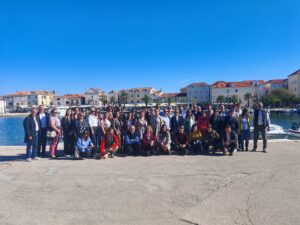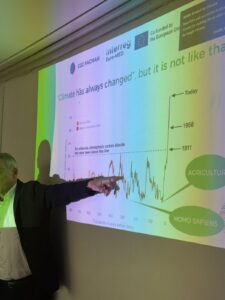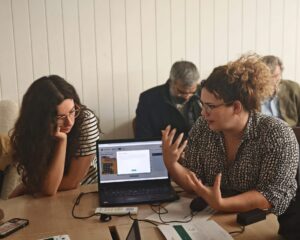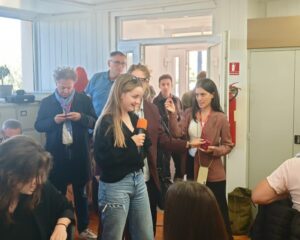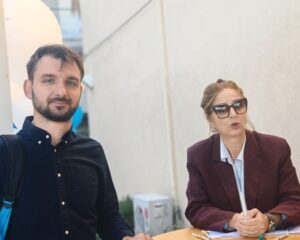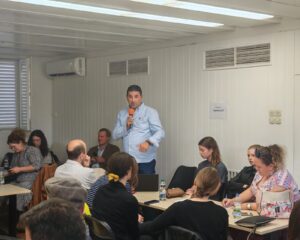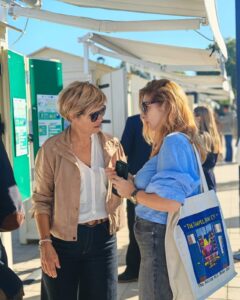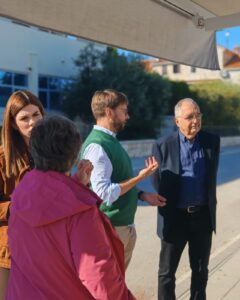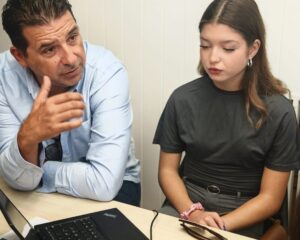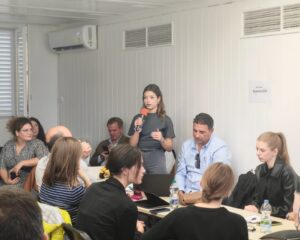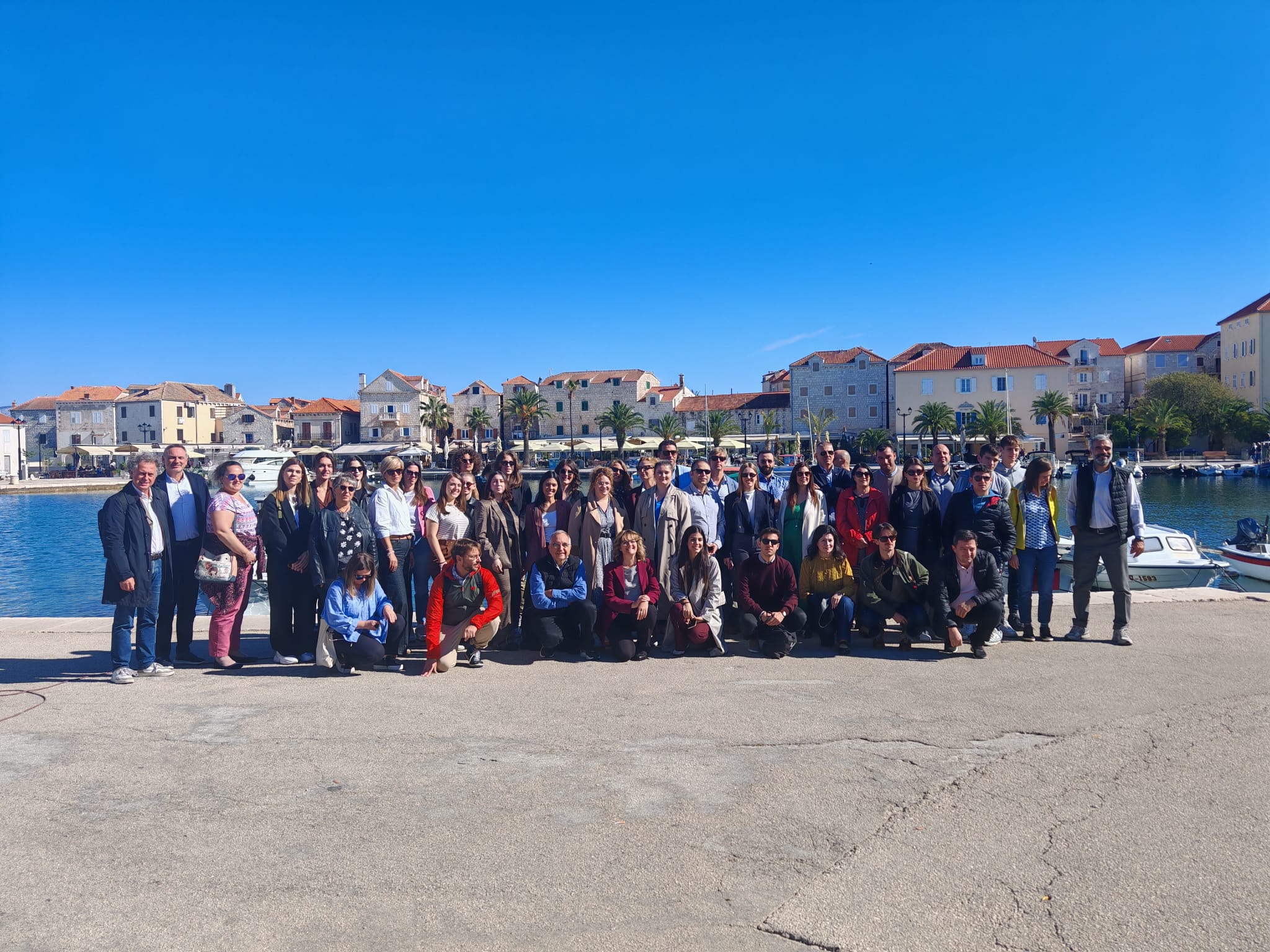In Supetar, under the organization of the County, a two-day event titled “The Island I Would Like” was held, aiming to encourage citizens to adapt to climate change and reduce carbon dioxide emissions. The atmosphere on the Supetar waterfront was extremely positive, with notable active participation from young people and a large number of citizens eager to learn more about implementing smart and sustainable solutions in everyday life.
The CO2 PACMAN project connects the islands of Brač, Elba, and Crete, promoting collaboration among local communities, public institutions, and citizens. The project’s goal is to develop concrete models and measures for the sustainable development of islands, with an emphasis on renewable energy sources, resource preservation, and reducing greenhouse gas emissions.
Participants concluded that the citizens of Brač are well-informed about sustainable modes of transportation, such as cycling and the use of electric vehicles, but expressed dissatisfaction regarding waste management, collection, and recycling. It was highlighted that more education and information is needed in that area.
Citizens also pointed out issues related to outdated infrastructure and the need for greater state investment in modernizing ferry and shipping lines, noting that these forms of transport are vital for the daily life of islanders.
The overall impression of the first day was that the project successfully fosters community spirit, awareness, and citizens’ readiness for change. Particularly encouraging was the strong interest from young people, who demonstrated impressive knowledge and enthusiasm in the field of sustainable development.
Professor Simone Bastioni from the University of Siena was pleased by the islanders’ turnout, and made the following comments:
“There is much evidence that even small changes can have a big impact on climate change. We already see it in our daily lives – through extreme heat, droughts, and floods. It’s clear that we must change the way we act, but we have to do it together,” said Bastioni, adding that cooperation between local authorities and citizens is essential, and that Brač is an excellent example of how sustainable living can be achieved.
Martin Bućan, project coordinator, also shared his thoughts, emphasizing the importance of the project for youth education:
“We are especially pleased with the participation of high schools from Supetar and Bol, whose students are gaining valuable knowledge and experience through this project. The most engaging part for them was the presentation of goals through VR – virtual reality – where they explored 3D models and proposed their own solutions for the island’s development.”
Young people are key – they are not only the leaders of tomorrow but the drivers of change today.
Brač, as an example of good practice in cooperation with partners from Italy and Greece, demonstrates how island communities can be leaders in the fight against climate change.
“Pollution is global, but action must be local – each of us can contribute by changing our own habits,” was the core message of the event.